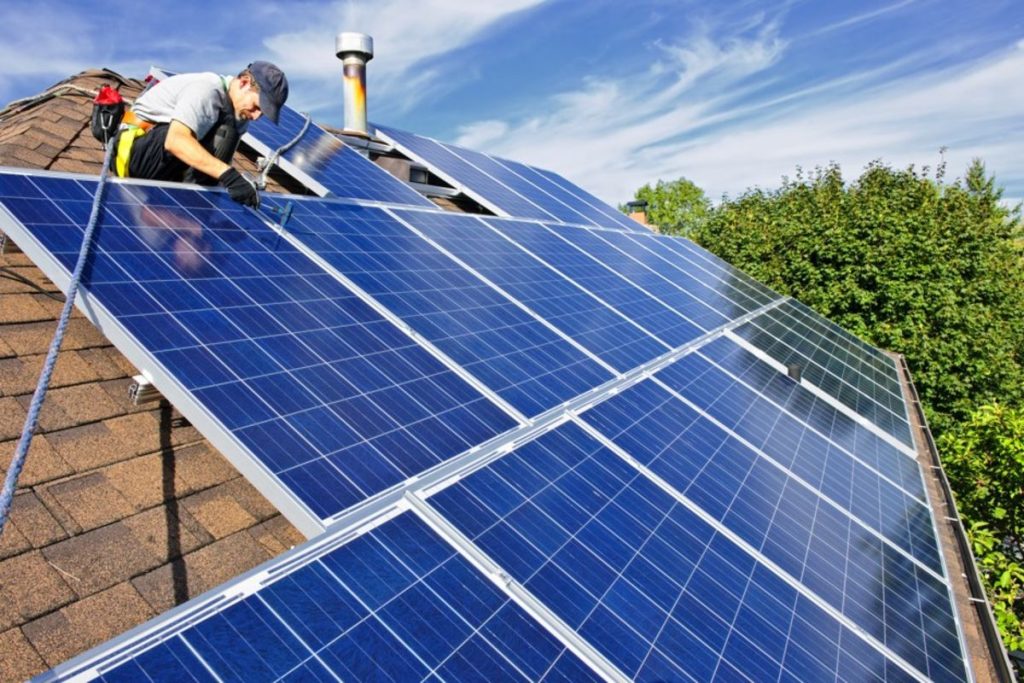Solar energy has become increasingly popular as homeowners seek sustainable and cost-effective energy solutions. However, despite its many benefits, there are still several myths and misconceptions surrounding solar energy that may deter homeowners from making the switch. In this blog post, we’ll debunk some common solar energy myths and separate fact from fiction.
Myth #1: Solar Panels Are Too Expensive
Fact: While solar panels have historically been expensive, the cost of solar energy has significantly decreased in recent years. Advances in technology, increased production, and government incentives have made solar energy more affordable and accessible for homeowners. Additionally, the long-term savings from reduced electricity bills can often offset the initial investment in solar panels.
Myth #2: Solar Panels Don’t Work in Cloudy or Cold Climates
Fact: Solar panels can still generate electricity on cloudy days and in cold climates. While direct sunlight is ideal for maximum energy production, solar panels can still generate electricity from diffuse sunlight and ambient light. Additionally, solar panels are often more efficient in cooler temperatures, making them suitable for a wide range of climates.
Myth #3: Solar Panels Require Constant Maintenance
Fact: Solar panels require minimal maintenance to ensure optimal performance. While occasional cleaning and inspections are recommended to remove dirt, debris, and other obstructions, solar panels are designed to withstand harsh weather conditions and require little to no maintenance beyond regular monitoring. Most solar panels come with warranties of 25 years or more, providing peace of mind and protection against defects or performance issues.
Myth #4: Solar Energy Is Unreliable
Fact: Solar energy is a reliable and predictable source of energy when properly designed and installed. Advances in technology, such as energy storage solutions and smart grid integration, have made solar energy more reliable and stable than ever before. Additionally, grid-tied solar systems allow homeowners to remain connected to the grid and access electricity when solar production is low, providing backup power during periods of high demand or inclement weather.
Myth #5: Solar Panels Are Bad for the Environment
Fact: On the contrary, solar panels are one of the cleanest and most environmentally friendly sources of energy available. Solar panels produce no greenhouse gas emissions or air pollutants during operation and have a minimal environmental impact compared to traditional fossil fuels. Additionally, the energy payback period for solar panels—the time it takes for a solar panel to generate enough energy to offset the energy used in its production—is typically less than two years, making them a sustainable choice for homeowners.
Myth #6: Solar Energy Is Only for Off-Grid Living
Fact: While solar energy is often associated with off-grid living, grid-tied solar systems are the most common and practical option for homeowners. Grid-tied systems allow homeowners to remain connected to the grid and sell excess electricity back to the utility company through net metering programs, providing additional savings and flexibility. Grid-tied systems offer the benefits of solar energy without the need for expensive battery storage or backup generators.
In conclusion, debunking common myths and misconceptions about solar energy is essential for homeowners considering solar installations. By separating fact from fiction and understanding the true benefits and capabilities of solar energy, homeowners can make informed decisions and harness the power of the sun to enhance their homes and reduce their environmental footprint.

